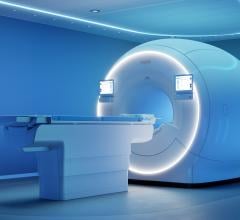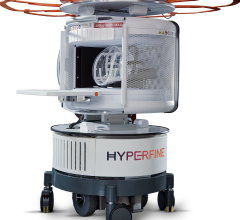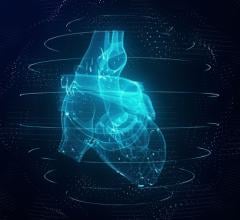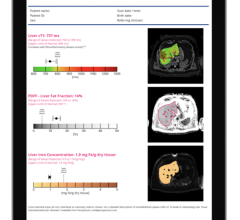
January 20, 2011 – Results from a large, worldwide, clinical trial show evidence that a first-of-its-kind pacemaker system is safe and effective to use during magnetic resonance imaging (MRI). During the trial, no MRI-related complications were reported in patients with the pacemaker system before, during, or after an MRI examination. The data from the clinical trial, published in the January edition of HeartRhythm, the official journal of the Heart Rhythm Society (HRS), proves the ability of this pacemaker system to be exposed in a controlled fashion to MRI without negatively affecting the patient or the system.
The randomized, controlled, multicenter clinical trial took place in the United States, Canada, Europe, and the Middle East. It evaluated the Medtronic Revo MRI SureScan Pacing System – including the pacemaker, leads and programming of device. After successful pacemaker implantation, a total of 464 patients were randomly placed into two groups – a controlled group who would not undergo MRI, and an MRI group. Patients in the MRI group underwent MRI examinations in a 1.5T scanner. Both groups were evaluated one week and one month post-MRI to determine whether or not any complications occurred that could be attributed to the MRI scanning.
Of the patients in the MRI group, 100 percent were free of MRI-related complications. The MRI scans were completed safely, delivering continuous pacemaker stimulation or regular spontaneous intrinsic activation when programmed to the proper mode. None of the patients in the MRI group experienced adverse effects that have been known to occur in pacemaker patients who undergo an MRI. Results of the trial were as follows:
• No inhibition of pacemaker output or cardiac arrest
• ?o sustained ventricular arrhythmias
• No unexpected changes of heart rate
• No electrical resets
• No pacemaker system disturbances
• No sensation of torque or pain
“Today, MRI scanning is used across many fields of medicine to help clinicians accurately diagnose patients to ensure each patient is treated properly and effectively,” said Bruce L. Wilkoff, M.D., FHRS, president-elect of the Heart Rhythm Society, department of cardiovascular medicine at the Cleveland Clinic. “At the same time, the number of people living with cardiac devices is increasing and we find ourselves in need of devices that are compatible with MRI scanning. This pacemaker system is truly the first to be designed specifically for safe use in an MRI environment.”
In a proper and controlled environment, this pacemaker system has proven to be safe during MRI scanning when used in accordance with its labeling. There were no disturbances of pacemaker function and no ventricular arrhythmia induction observed in this clinical trial.
For more information: www.heartrhythmjournal.com


 January 21, 2026
January 21, 2026 








